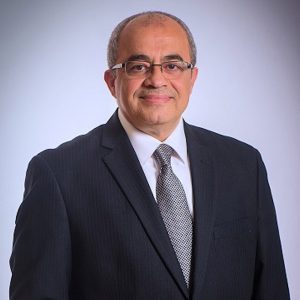The 2020–21 academic year kicked off on 16 August for new and returning students at Hamad Bin Khalifa University (HBKU) with a virtual ‘Start to Academic Year 2020 – 2021’.
Held under the theme of ‘Hayakom at HBKU’, the event marked the beginning of the university’s 10th anniversary milestone. It was an opportunity for students to meet future classmates, faculty and staff, and obtain key information about campus resources ahead of commencing their studies. This year, HBKU welcomes over 360 newly enrolled students comprising 48 nationalities, 22% of which are Qatari nationals.
The ‘Start to Academic Year 2020–21’ provided students with a comprehensive overview of what they can expect from their respective programmes and the unique research opportunities available at HBKU. The event commenced with opening remarks from senior management at HBKU, followed by a series of information sessions aimed at better preparing students for the next chapter of their academic journey. These included a digital tour of HBKU’s colleges, research institutes and facilities, as well as other important locations within the Education City campus. A series of webinars provided opportunities for past and returning students to share success stories and offer personal advice to the newcomers.
We are proud to welcome all our students to the start of a new, exciting and hopeful academic year, said President of HBKU, Dr Ahmad M Hannah.
In keeping with academic institutions around the world, HBKU accepts the current global situation with positivity, pragmatism and determination. We will continue to educate and prepare our students to become global citizens and future innovators that develop novel solutions with a positive global impact.
 The pandemic has had a global impact on various economic, social, and health aspects, and in particular education, as it led to a halt in the education process for many months in some countries. There was also an inevitable shift towards online education, said Asila Mubarak Shaikhan Al Waili, a new student at the College of Islamic Studies at HBKU.
The pandemic has had a global impact on various economic, social, and health aspects, and in particular education, as it led to a halt in the education process for many months in some countries. There was also an inevitable shift towards online education, said Asila Mubarak Shaikhan Al Waili, a new student at the College of Islamic Studies at HBKU.
What the world is now going through obliges everyone to adapt. Students in particular are required to do so to achieve continuity in the education process. Some students found it difficult at first, but over time, managed to overcome the difficulties.
Vice president of student affairs, Maryam Hamad Al Mannai, encouraged students to embrace HBKU’s virtual research and learning environment. She said that for 10 years, HBKU has provided its students with a wealth of resources and cutting-edge facilities to complement their academic endeavours. Their virtual tour and webinars are merely an extension of this commitment and demonstrate that a multicultural and integrated educational environment is also possible online.
HBKU’s degree programmes are tailored to build specialised capacity to address the most in-demand current and future skills of local and international employment markets.
Interim provost of HBKU, Dr Emad El-Din Shahin, said that HBKU empowers its students by providing a world-class education complemented by a positive academic and cultural experience. This is not only reflected by renowned experts that populate their colleges, but also by their dynamic and growing portfolio of academic programmes. HBKU has consistently demonstrated over the past decade that it has its finger on the pulse in terms of courses offered and their relevance to current and future challenges.
Our newest course offerings build on an already-impressive list of research-driven graduate programmes and demonstrate that innovation and progress are at the heart of everything we do.
I hope we hear of new developments that will help solve the global crisis. I think we need to continue our distant education practices, and follow precautionary measures against the virus. I also hope one day to be able to go back to the traditional classroom setting,’ said Al Waili.
HBKU, a member of Qatar Foundation for Education, Science, and Community Development (QF), was founded in 2010 as a research-intensive university that acts as a catalyst for transformative change in Qatar and the region while having global impact. Located in Education City, HBKU is an innovation-centric academic institution, developing interdisciplinary academic programmes and national research capabilities that drive collaboration with the world’s best institutions, prepare future leaders with an entrepreneurial mindset, and shape novel solutions for positive, global impact.
For more information about HBKU’s programmes and events, visit hbku.edu.qa.









